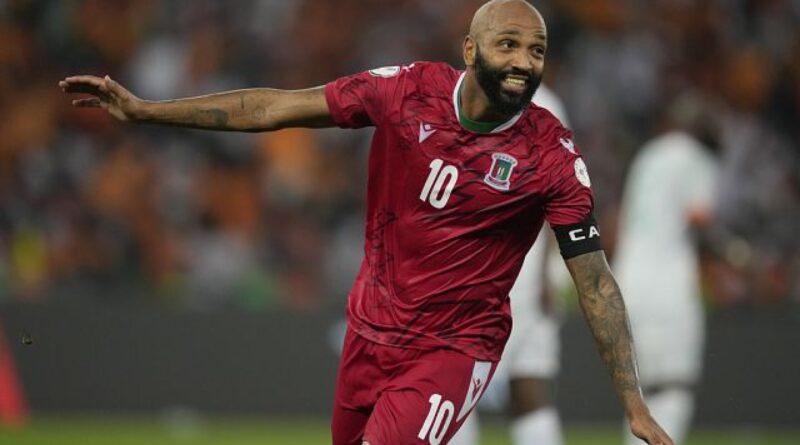FIFA: Nsue was not allowed to play for Equatorial Guinea
Top scorer at the Africa Cup of Nations five months ago, Emilio Nsue, was never eligible to play for Equatorial Guinea throughout his 11-year international career, FIFA judges have ruled.
FIFA has just published a detailed verdict explaining why its disciplinary committee last month stripped Equatorial Guinea of two victories in qualifying matches for the 2026 World Cup held in November.
In both matches, Nsue, 34, scored in 1-0 wins over Namibia and Liberia . The former Spain under-21 and youth international should not have played in those two matches and FIFA has now banned him from playing for the national team for six months.
This is a repeat of FIFA disciplinary verdicts in 2013 which also ordered Equatorial Guinea to lose two 2014 World Cup qualifying matches by default due to Nsue’s ineligibility.
FIFA said its disciplinary judges in the most recent investigation upheld the motive for the 2013 cases, namely that Nsue was ineligible because he had played competitive matches for Spain’s age-matched teams before acquiring your new nationality.
Nsue “apparently acquired Equatorial Guinean nationality (March 2013) only after playing his first international match in an official competition” with Spain, the FIFA judges wrote in their judgment.
The player had actually made 26 competitive appearances for Spanish teams from under-16 to under-21 levels for six years until 2011. The 15-page FIFA document, dated May 10, 2024, details this which appears to have been a chaotic process ten years earlier for the Equatoguinean federation trying to get Nsue approved.
In 2013, the federation asked Spanish authorities, but not FIFA, to release Nsue, then selected and fielded him in two World Cup qualifying matches without formal authorization. These matches were later canceled by default.
In December 2013, FIFA rejected Nsue’s request for a change of eligibility and cited the new, late-acquired nationality. Yet he continued to play for the Equatorial Guinea team.
Nsue “still took part in a substantial number of matches for the FEGUIFOOT (senior men’s) representative team over a significant period (while knowing without doubt that he was ineligible)” , the FIFA judges wrote .
He participated in qualifying matches for the 2018 and 2022 editions of the World Cup despite these disciplinary cases and missed matches in the 2014 edition. The reason why FIFA did not pursue these cases matches is not clear.
Nsue also participated in the 2015 Africa Cup of Nations , hosted by Equatorial Guinea as a replacement host, although he was disqualified from the qualifying program due to an ineligible player. It also participated in CAN 2022, organized outside of FIFA control by the Confederation of African Football .
Nsue has now played more than 40 matches for the national team and has scored 23 goals, including five in January during the last AFCON. The publicity he received in Ivory Coast appears to have provoked a new disciplinary procedure.
The latest investigation was opened by FIFA in March and Nsue was contacted with a six-day deadline to respond to the ongoing accusation. “No position was received from the defendant ,” the FIFA judges wrote.
The judges also explained that they only took action against Nsue’s matches for the 2026 World Cup because it is an ongoing competition.
Nsue, who now plays for Spanish lower-tier team Intercity, and his national federation can appeal the sanctions, first to FIFA and then to the Court of Arbitration for Sport.

